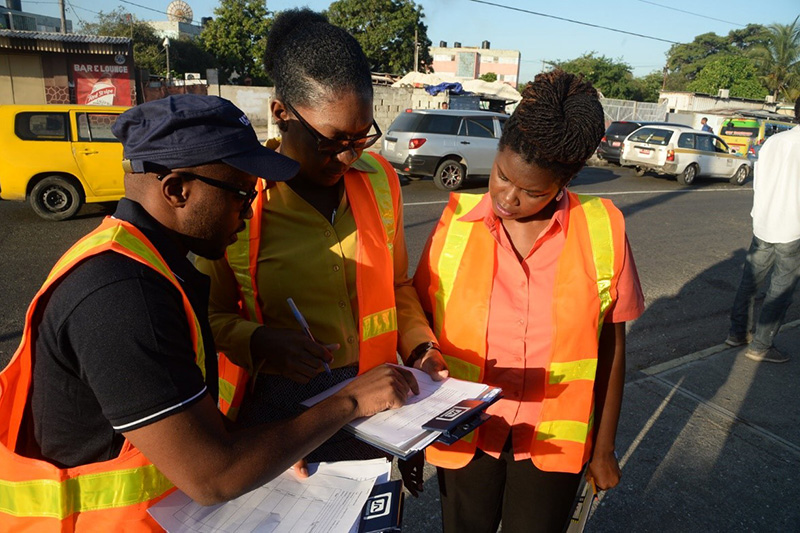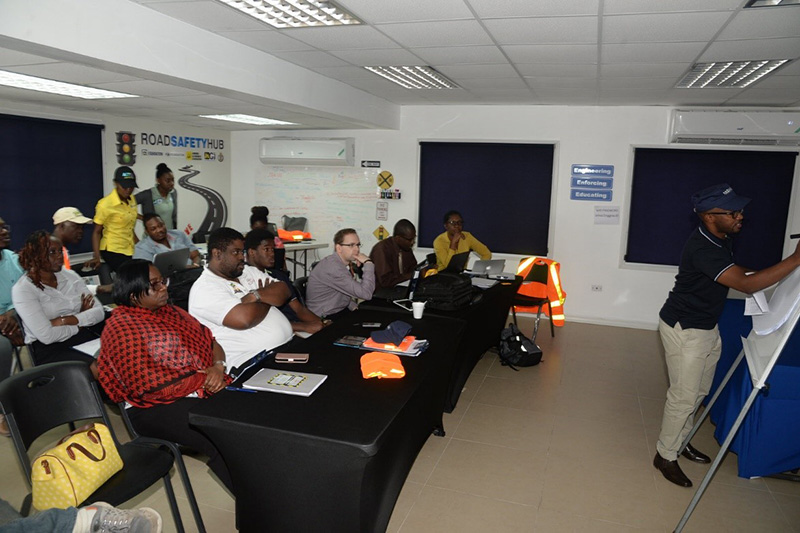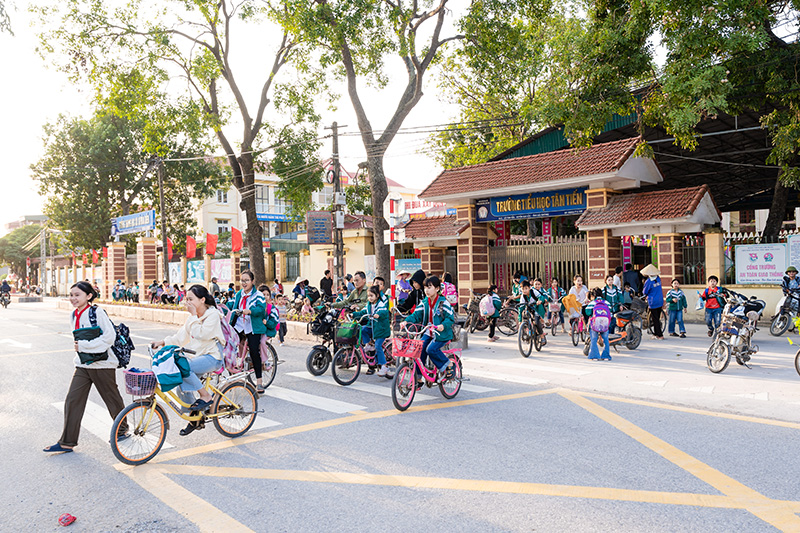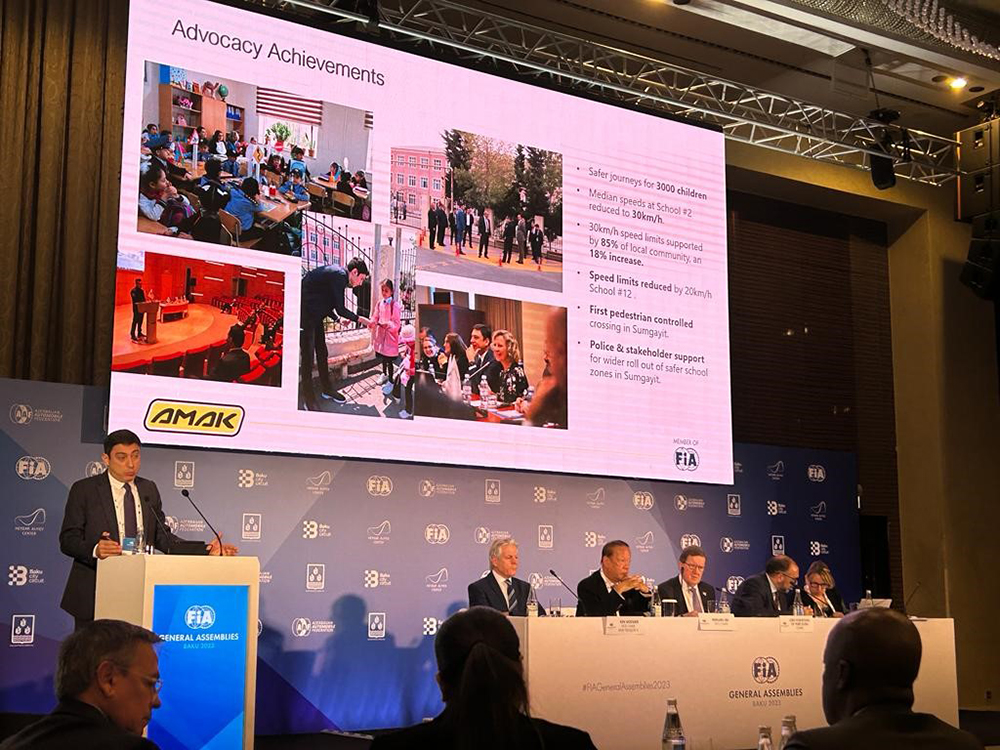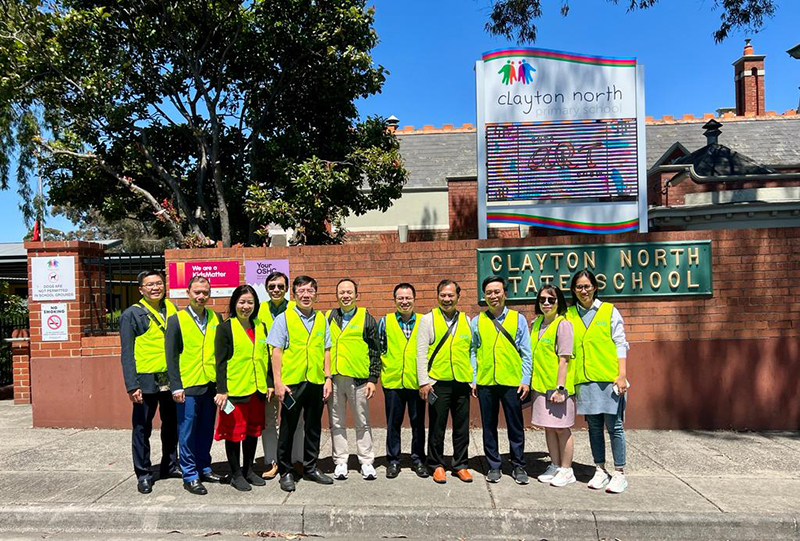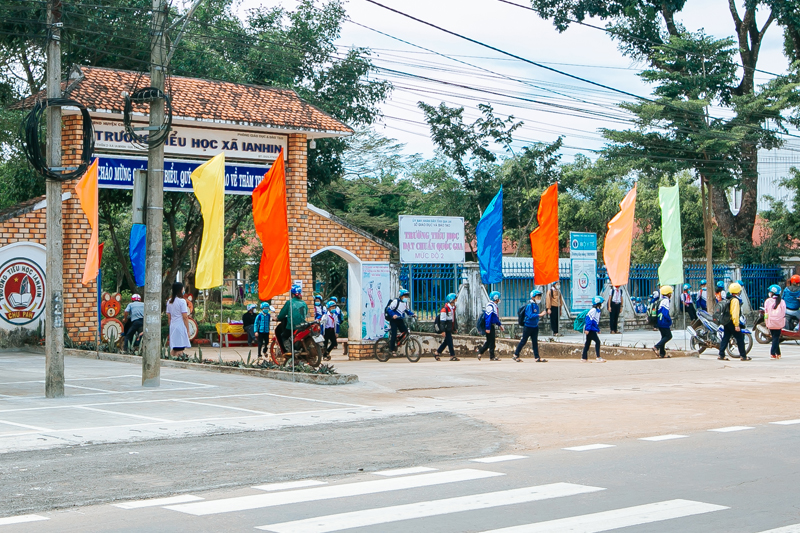Child Health Initiative workshop plots safer journeys for Jamaican children
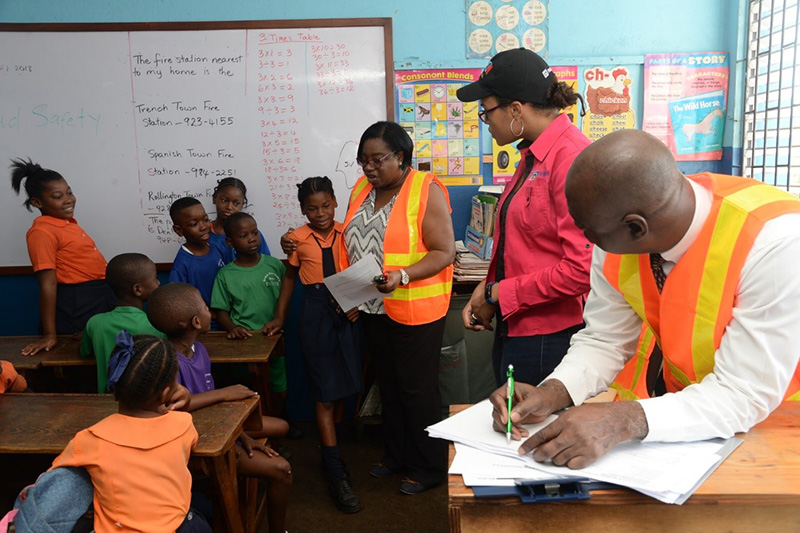
A practical workshop on child traffic injury prevention and safe and healthy journeys to schools has been convened by UNICEF in Jamaica with support from the FIA Foundation and its implementation partners AMEND and iRAP.
UNICEF is leading a child road traffic injury prevention programme in Jamaica in collaboration with Jamaica National (JN) Foundation and the National Road Safety Council. Programme activities in Jamaica include in-depth review of gaps in policies and legislation, public education campaign for strengthening institutional frameworks on road safety, advocacy for Jamaica signing the UN conventions on Road Safety, and infrastructure safety improvements to streets in demonstration school areas.
In 2016, 379 people died due to crashes on Jamaican roads and so far in 2018 more than 50 people have already lost their lives on the roads. Child pedestrians represent the most vulnerable group of road users. This is compounded by lack of safe infrastructure, including footpaths for children, which are critical to ensuring safety of children on roads. Recent data from the Jamaican police traffic division indicates that on average three children are killed on Jamaica’s streets each month.
The workshop, held in Kingston on 6-8th February, brought together the Foundation’s long term partners AMEND and International Road Assessment Programme (iRAP) to share their expertise on road assessments and infrastructural improvements. The Foundation is supporting UNICEF led-programmes in nine countries around the world which focuses, on three aims: a) improving safe routes to school for child pedestrian safety; b) enforcing motorcycle helmet use for children in contexts where motorcycles are the main means of family transportation, and c) strengthening the implementation of policies on safe school transportation.
The workshop supported partners in Jamaica in learning from the experiences of AMEND’s School Area Road Safety Assessment and Improvement (SARSAI) programme and iRAP’s Safe Rating for Schools app. The Foundation’s long-term partner, AMEND, is working in 10 sub-Saharan Africa countries to implement and advocate for increased uptake of School Area Road Safety Assessment and Improvement (SARSAI) projects. Similarly, iRAP, with its internationally recognised measure of risk on roads, has recently launched the Star Rating for Schools app, which combines an easy-to-use web application to assess road risks around schools. AMEND and IRAP shared practical knowledge on how to design, implement and conduct impact assessments of infrastructural measures to address specific risks around schools. The workshop also involved hands-on road infrastructure assessment around Denham Town and Hazard primary schools.
Participants in the workshop included representatives of the Ministry of Transport and Mining–Road Safety Unit, the National Road Safety Council, the Jamaica Constabulary Force, the Ministry of Education, Youth and Information, the Jamaica Social & Investment Fund, UNICEF and the JN Foundation. A significant highlight of the programme was the sharing of experiences between partners working in Low and Middle Income Countries. Speaking about the workshop, Jeffrey Witte, Executive Director at AMEND said, "For us at Amend, it is a special pleasure to be able to take work that was developed in sub-Saharan Africa elsewhere in the world and see the benefits it can have in other regions. Development isn't a one way street." Onyka Barrett Scott, Partnerships & Development Manager at the JN Foundation said “A key output of the workshop was conducting a preliminary assessment of prioritized schools and mapping the key interventions that could significantly increase the safety rating of the roadways in the immediate vicinity. The project is now well placed to initiate work in two school locations”.
The workshop has helped the UNICEF programme team gather the evidence for selecting high risk schools which will receive road safety interventions including implementing infrastructural measures to address identified risks. “Crossing the road near to school should never cost a child his or her life,” commented Dr. Rebecca Tortello, UNICEF Education Specialist. Dr Tortello added, “To that end, we are very pleased to be working with organizations like FIA Foundation, Amend, IRAP and our implementing partner, the JN Foundation which has a long, productive track record in road safety in Jamaica. Together we know we can create provide this much needed added protection for our children.”
